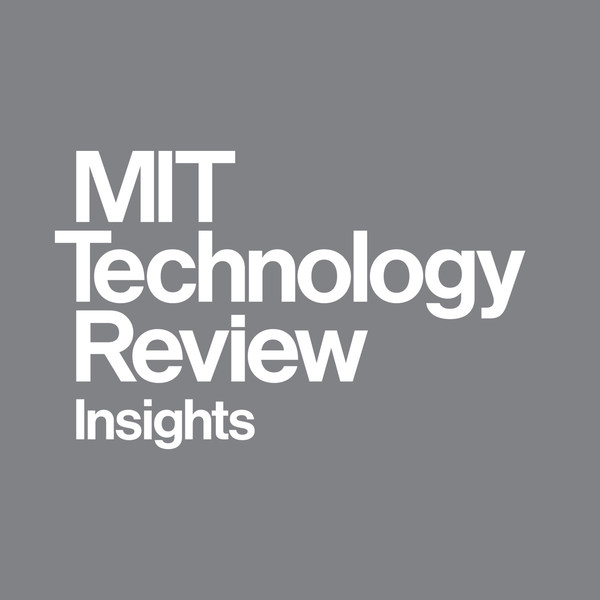 |
CAMBRIDGE, Mass., July 18, 2023 /PRNewswire/ -- A new report by MIT Technology Review Insights seeks to understand how technology leaders are adopting emerging generative AI tools as part of an enterprise-wide AI strategy.
The report, "The great acceleration: CIO perspectives on generative AI," is produced in partnership with Databricks and is based on in-depth interviews with senior executives and experts, conducted in April and May 2023. Among the organizations represented in this research are DuPont Water & Protection, MIT, MosaicML, Shell, Cosmo Energy Holdings, the US Department of Veterans Affairs, Adobe, and University of California, Berkeley.
The report also draws on an MIT Technology Review Insights global survey of 600 senior data and technology executives, conducted in May and June 2022, which found that scaling AI successfully was a top priority for 78% of surveyed executives.
"Generative AI is driving disruption across every industry and CIOs recognize that leveraging AI is no longer a nice to have, but is imperative to remain competitive. To support this, we'll see data-driven companies extend and commercialize models with their own data, integrating them into customized applications that make sense for their business." - Matei Zaharia, Co-Founder and Chief Technology Officer, Databricks, and Associate Professor of Computer Science, University of California, Berkeley.
The findings are as follows:
Generative AI and large language models (LLMs) are democratizing access to artificial intelligence, finally sparking the beginnings of truly enterprise-wide AI. Powered by the potential of newly emerging use cases, AI is finally moving from pilot projects and "islands of excellence" to a generalized capability integrated into the fabric of organizational workflows. Technology teams no longer have to "sell" AI to business units; there is now significant "demand pull" from the enterprise.
"We can now translate language into something that a machine can understand. I can't think of anything that's been more powerful since the desktop computer." - Michael Carbin, Associate Professor, MIT, and Founding Advisor, MosaicML.
Organizations seek to leverage open-source technology to build their own LLMs, capitalizing on and protecting their own data and IP. CIOs are already cognizant of the limitations and risks of third-party services, including the release of sensitive intelligence and reliance on platforms they do not control or have visibility into. They also see opportunities around developing customized LLMs and realizing value from smaller models. The most successful organizations will strike the right strategic balance based on a careful calculation of risk, comparative advantage, and governance.
"There is a need to keep LLM models internal to our organization, to protect and secure our intellectual property — this is a critical need." - Andrew Blyton, Vice President & Chief Information Officer, DuPont Water & Protection.
Automation anxiety should not be ignored, but dystopian forecasts are overblown. Generative AI tools can already complete complex and varied workloads, but CIOs and academics interviewed for this report do not expect large-scale automation threats. Instead, they believe the broader workforce will be liberated from time-consuming work to focus on higher value areas of insight, strategy, and business value.
"We internally view AI/ML as being a helper, truly helping our people, and then allowing them to spend more time on other value-added activities." - Cynthia Stoddard, Senior Vice President & Chief Information Officer, Adobe.
Unified and consistent governance are the rails on which AI can speed forward. Generative AI brings commercial and societal risks, including protecting commercially sensitive IP, copyright infringement, unreliable or unexplainable results, and toxic content. To innovate quickly without breaking things or getting ahead of regulatory changes, diligent CIOs must address the unique governance challenges of generative AI, investing in technology, processes, and institutional structures.
"By establishing unified and consistent governance frameworks, organizations can navigate the potential risks and maximize the benefits of generative AI adoption," says Laurel Ruma, global director of custom content for MIT Technology Review. "CIOs play a pivotal role in ensuring ethical and responsible AI practices, striking the right balance between innovation and compliance. With the democratization of AI and the integration of generative models into organizational workflows, we are witnessing the transformative power of AI on a truly enterprise-wide scale."
To download the report, click here.
For more information please contact:
Natasha Conteh
Head of Communications
MIT Technology Review Insights
natasha.conteh@technologyreview.com
About MIT Technology Review Insights
MIT Technology Review Insights is the custom publishing division of MIT Technology Review, the world's longest-running technology magazine, backed by the world's foremost technology institution—producing live events and research on the leading technology and business challenges of the day. Insights conducts qualitative and quantitative research and analysis in the U.S. and abroad and publishes a wide variety of content, including articles, reports, infographics, videos, and podcasts. And through its growing MIT Technology Review Global Insights Panel, Insights has unparalleled access to senior-level executives, innovators, and entrepreneurs worldwide for surveys and in-depth interviews.